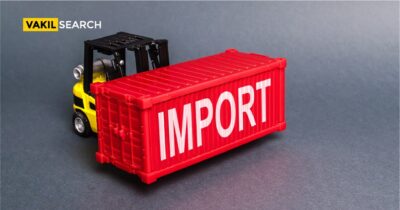In an effort to boost value addition, increase Indian exports of goods and services, and create jobs, the government introduced Foreign Trade Policy (FTP).
Overview
The government launched the Foreign Trade Policy (FTP) in an effort to increase Indian exports of goods and services, create jobs, and boost value addition. By putting the policy into practice, the government hopes to grow the industrial and production industries. An overview of the different facets of the policy is provided in this article.
Basic Focus Areas
Through the policy, the government primarily focuses on promoting traditional and emerging export sectors, including services. Additionally, it aims to make business operations simpler.
Duration of the Policy
The Foreign Trade Policy (FTP) was launched during the 2015–16 fiscal year and is currently in effect through 31 March 2020. The policy will govern the nation’s entire exports and imports during this time. India is expected to become a significant trading nation by 2020, according to the government.
2021–2026: New Foreign Trade Policy
The session was conducted on 12 January 2021 on the topic “New Foreign Trade Policy for the year 2021-26.” According to the committee, the main purpose of the policy would be to position India as a leader in global trade within the next five years.
The Ministry of Commerce and Industry was briefed on a few of the following proposals for the new policy as discussed with the committee, and the government appears committed to making considerable progress toward realizing its $5 trillion dream.
Foreign Trade Policies Aimed at Improving Ease of Doing Business
Here is a summary of some of the major projects covered by the Foreign Trade Policy:
Niryat Bandhu Scheme
Through outreach programmes, training, and counselling, DGFT has developed the Niryat Bandhu Scheme to guide aspiring exporters through the complexities of international business. In order to increase exports, MSME clusters have indeed been identified for targeted interventions due to the growth of small and medium-sized businesses and their contribution to employment.
With the support of Export Promotion Councils as well as other interested knowledge partners in the academic and research community, outreach activities will be structured in order to accomplish the scheme’s goal. In addition, all stakeholders—including Customs, the ECGC, banks, and the relevant Ministries—will try to work together for the best possible resource utilization.
Electronic IEC
For the purpose of conducting exports and imports from some other country, an import export code, or even in colloquial terms, an export permit, is required. IEC application online filing has been made easier by DGFT.
Foreign Trade Policy
By using a secured electronic mode, the Electronic Bank Certificate (e-BRC) initiative allows the DGFT to obtain key information about the realization of export proceeds straight from the banks. This opens the door for the implementation of various export promotion programmes without requiring any direct contact with the stakeholders. With 14 State Governments, a Memorandum of Understanding (MOU) has indeed been signed regarding the sharing of e-BRC data in order to provide GST refunds for exporters.
In addition, agreements have been made with the Enforcement Directorate, Agricultural Directorate, Agricultural Processed Food Products Export Development Authority, and the Goods and Services Tax Network (GSTN).
Exporter Importer Profile
To upload different types of documents and to cut down on transaction costs and processing times, an exporter importer file is created. One of the system’s highlights is the elimination of the need to repeatedly submit original documents or duplicates of them to the Regional Authority with each application once the documents have been uploaded.
Online Filing of Applications
Application filing is now simpler than ever before thanks to digitization. The DGFT has made it easier to submit applications online for IEC and different Authorizations/scripts. The organisation has developed a web interface for online application submission. The application fee may be paid online, and the applicable fees may be paid using the available banking services. The completed applications are registered and sent electronically to the relevant DGFT Regional Authority, where they are then processed and authorizations or scripts are issued.
Online Inter-Ministerial Consultation
In a recent phenomenon, exporters now have the option to upload copies of all required documents, such as technical specs, literature, and the like, in the following file types: PDF, JPG, JPEG, or GIF.
- Fixing of standards with prior approval from norms committees.
- Exporting prohibited goods.
- Import of prohibited goods.
- SCOMET objects
Except for drawings for machines and agriculture that are challenging to scan and upload, exporters are no longer required to submit hard copies of their applications. Application processing will be done online.
Facility for CA/CS/Cost Accountant
Chartered Accountants, Company Secretaries, and Cost Accountants can now use an electronic process to publish their digitally signed documents. The exporter must use this feature to connect the digitally uploaded annexure to their online application.
Electronic Data Interchange
To facilitate exports and advance good governance, the DGFT established the EDI system. Exporters and importers now have less physical contact with government departments because the official body has established a secure EDI message exchange for activities involving documentation, such as Customs, banks, and EPCs. It also results in the exemption of transaction cost.
Export Consignment
Export shipments will be handled immediately and without exception. Instead, the concerned authorities may request an undertaking from the exporter before releasing such a shipment.
Withdrawal of Seizure of Export-Related Stock
The manufacturing process is hindered and the delivery schedule is hampered by seizures, so agencies should refrain from making any. If there is prima facie evidence of a serious irregularity, some agencies are still allowed to conduct the seizure; however, in this case, the seizures must be forced to withdraw in under seven days unless such defaults are proven.
Round-the-Clock Customs Clearance
At 19 seaports and 17 air cargo complexes, there is now 24-hour customs clearance service. All Bills of Entry at 19 seaports and 17 air cargo complexes are now eligible for the 24-hour customs clearance service. In addition, Merchant Overtime Charges (MOT) are not required to be paid for the services rendered by Customs officers at airports and ports open around the clock.
Single Window Interface
SWIFT, or Single Window Interface for Facilitating Trade, was established to make business more easily accessed. By using the system, importers can submit an Integrated Declaration to Customs electronically from a single location. Without going to them directly, other regulatory organisations grant the required permissions.
Authorized Economic Operator (AEO) Programme
To the advantage of companies involved in international trade, Indian Customs have created the Authorised Economic Operator (AEO) program in accordance with the WCO’s Safe Framework of Standards (FOS). Benefits include the following:
- Secure supply chain from the exporting to the importing point.
- Possibility of adhering to security standards when working with foreign importers or exporters on contracts.
- Enhanced border clearance privileges in nations that have signed a Mutual Recognition Agreement (MRA).
- Minimal disruption to cargo flow following a security-related disruption.
- Decrease in dwell time and associated expenses.
- Advice or assistance from customs on unforeseen problems encountered by trade with customs of nations with which India has partnered with MRA.
Facility of Filing Shipping Bills
Now, shipping bills can be submitted online prior to a shipment. The filing deadline for air shipment bills is seven days, whereas the deadline for sea shipment bills is fourteen days.
Facilitating Export of Perishable Export Products
A single window system was implemented to make it easier to export perishable agricultural products and lower the costs of handling and transportation. The Delhi-based Agricultural and Processed Food Products Export Development Authority will grant accreditation to multifunctional nodal organizations under this system (APEDA).
Time Release Study
The WCO developed a special tool known as the time release study to assess the overall performance of Customs. In addition, the tool aids in locating obstructions that prevent customs release or bottlenecks in the global supply chain. It will now be used by Indian Customs at significant Customs locations every six months.
Towns of Export Excellence
Specified towns with a goods turnover of ₹750 Crores or more may be notified as TEE based on its export potential. Handloom, handicraft, agriculture and fisheries sectors will have a threshold limit of ₹150 Crores. Tee’s will be provided with the following benefits:
- Priority financial aid under the MAI scheme will be given to recognised associations of units for export promotion projects in marketing, building capacity, and technological services.
- These common service providers will be qualified for authorization under the EPCG scheme.
National Committee on Trade Facilitation (NCTF)
After India ratified the WTO trade facilitation agreement, the National Committee on Trade Facilitation (NCTE) was established. It was created to make it easier to coordinate domestically and put TFA provisions into effect.
E-Mail Notification Service
In order to provide importers with information on all significant import clearance stages, the Central Board of Excise and Customs (CBEC) has started an email notification service.
The facility of Deferred Payment
The CBEC has also made it possible to defer paying customs duties as a further measure to facilitate trade. The facility is thought to be available to certified importers under the AEO program.
Conclusion
Contact our legal staff at Vakilsearch to learn more about Foreign Trade Policy. Also, if you need any help realted to the topic, our legal experts can help you thoroughly.










